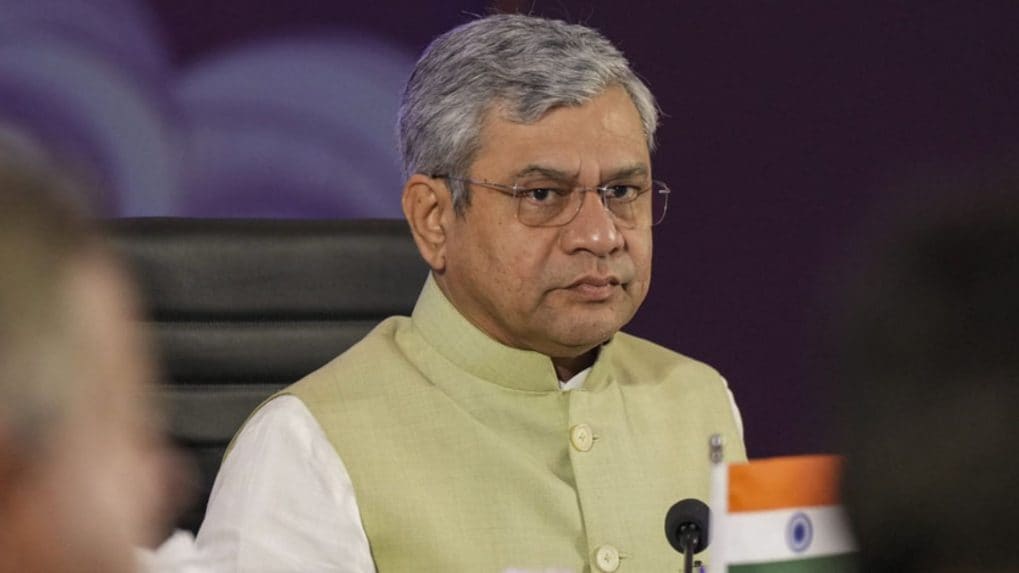India’s AI plan to democratise tech, tackle local challenges, boost jobs: Ashwini Vaishnaw
From AIKosh’s 1,200+ India-specific datasets to Bhashini’s Indic language tools, the government outlines a data-driven strategy to power inclusive AI development and tackle local challenges.
ADVERTISEMENT
India is advancing its artificial intelligence strategy with a sharp focus on data accessibility, local relevance, and inclusive technology development.
Union Minister of Electronics and IT Ashwini Vaishnaw, in a parliamentary session, outlined for recent initiatives are building a national AI ecosystem rooted in the Prime Minister's vision of democratizing technology use.
India's tech sector, projected to surpass $280 billion in annual revenue this year and employing over six million people, is already a global AI contender.
The country hosts more than 1,800 Global Capability Centres - over 500 of them AI-focused - and boasts around 1.8 lakh startups, 89% of which launched last year with AI-powered offerings.
Rankings such as the Stanford AI Index place India among the top nations in AI skills and policy readiness, while the country is the second-largest contributor to GitHub AI projects.
At the heart of this growth is the IndiaAI Mission, launched in 2024 to expand AI access and align it with national development goals. A key pillar is AIKosh, a unified datasets platform integrating government and non-government data sources.
Also Read: 43 OTT platforms blocked for 'obscene' content: Union Minister Ashwini Vaishnaw informs Parliament
It currently hosts more than 1,200 India-specific datasets and 217 AI models, spanning sectors like health, agriculture, and education.
The platform's sandbox feature allows startups and academia to test AI tools in controlled environments, while small-scale AI models such as Indian language text-to-speech systems are also available.
The Bharat Data Exchange extends the government's open data repository to serve as AIKosh's backend, ensuring public access to shareable data in both human- and machine-readable formats.
Another major initiative, Digital India Bhashini, under the National Language Translation Mission, focuses on AI-driven language solutions. Citizens contribute speech, text, and translations in 22 Indian languages through the BhashaDaan platform.
In partnership with over 70 research institutions, Bhashini is developing large annotated datasets for technologies like speech recognition and machine translation. Efforts are made to reflect India's linguistic diversity and minimize bias by including regional dialects and variations.
The government's AI push is also supported by the National Mission on Interdisciplinary Cyber-Physical Systems (NM-ICPS), which has established 25 Technology Innovation Hubs at leading academic institutions.
These hubs have produced India-specific datasets such as the India Driving Dataset, medical imaging archives, and multilingual speech corpora.
Notable contributions include IIT Bombay-led BharatGen, building large India-centric AI corpora, and IISc Bengaluru's ARTPARK, which has developed the Vaani dataset covering 54 languages.
In the healthcare domain, the Indian Council of Medical Research (ICMR) is centralizing high-quality clinical datasets, compliant with global and national standards. These include national surveys, disease registries, and diagnostic imaging datasets.
The AI strategy is backed by funding and research collaborations under schemes like IMPRINT, Uchhatar Avishkar Yojana, and the Anusandhan National Research Foundation’s “AI-for-Science” initiative. The India AI Open Stack further aims to provide a foundational architecture for researchers with science and engineering models tailored for Indian contexts.
Collectively, these efforts are building a repository of high-quality, unbiased, and vernacular datasets, designed to accelerate AI innovation for India-specific challenges while contributing to global AI research.


